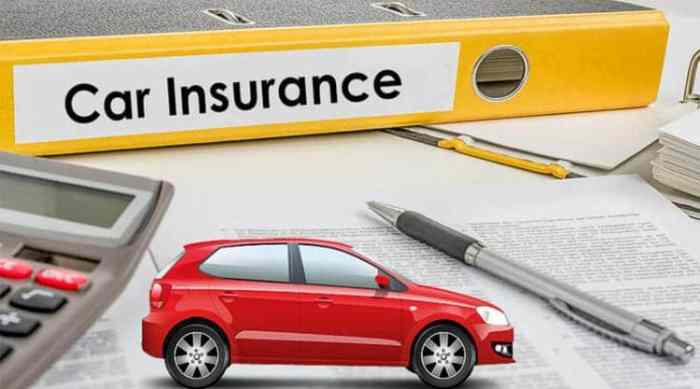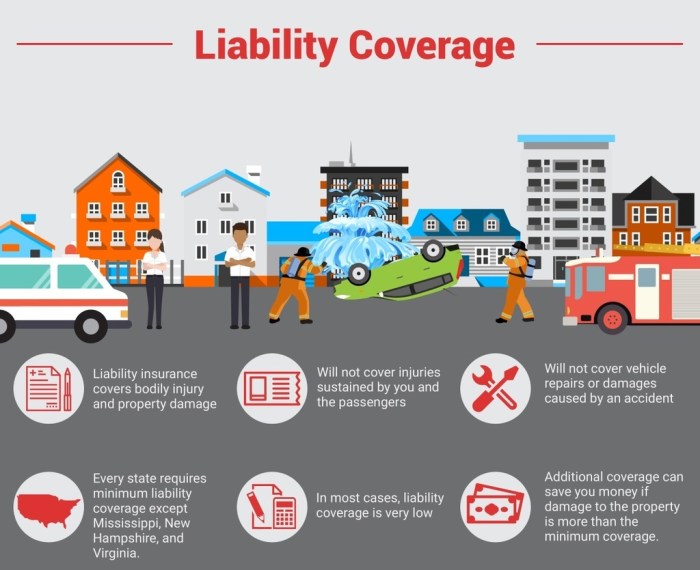Yo, diving into the world of car insurance policies, we’re about to break down the different types, factors affecting premiums, coverage options, and the claims process. Get ready for some knowledge bombs!
Types of Car Insurance Policies
When it comes to car insurance, there are several types of policies to choose from. Each type offers different levels of coverage and protection for your vehicle.
Comprehensive Car Insurance
Comprehensive car insurance provides the highest level of coverage. It protects your vehicle against a wide range of risks, including theft, vandalism, natural disasters, and collisions. This type of policy is ideal for new or expensive cars that you want to protect fully.
Third Party Car Insurance
Third party car insurance is the most basic and mandatory type of coverage required by law. It covers damages and injuries to third parties involved in an accident that you are responsible for. This policy does not cover damages to your own vehicle. It is suitable for older cars with lower value.
Third Party, Fire, and Theft Car Insurance
This type of policy offers the same coverage as third party insurance but also includes protection against fire damage and theft of your vehicle. It is a middle ground between comprehensive and third party insurance, suitable for cars that are at moderate risk of theft or fire damage.
Remember to choose the car insurance policy that best fits your needs and budget to ensure you have the right level of protection on the road.
Factors Influencing Car Insurance Premiums

When it comes to car insurance premiums, several key factors play a significant role in determining the cost you’ll pay. From your age and driving record to your location and type of vehicle, these variables can greatly impact the rates you receive. By understanding how these factors influence your premiums, you can take steps to potentially lower your insurance costs.
Age
Age is a major factor that affects car insurance premiums. Generally, younger drivers under the age of 25 are considered high-risk drivers and may face higher insurance rates due to their lack of driving experience. On the other hand, older, more experienced drivers typically receive lower premiums because they are seen as safer and more responsible on the road.
Driving Record
Your driving record is another crucial factor in determining your car insurance premiums. A clean driving record with no accidents or traffic violations signals to insurance companies that you are a safe driver, leading to lower rates. Conversely, a history of accidents or speeding tickets can result in higher premiums as it indicates a higher risk of future claims.
Location
Where you live can also impact your car insurance premiums. Urban areas with higher rates of traffic congestion and crime tend to have higher insurance costs compared to rural areas. Additionally, states with higher rates of uninsured drivers may also lead to increased premiums for all drivers in that area.
Type of Vehicle, Car insurance policies
The type of vehicle you drive can also influence your insurance rates. Cars with high horsepower, expensive repair costs, or a higher likelihood of theft are typically more expensive to insure. On the other hand, safer, more affordable vehicles with good safety ratings can result in lower premiums.
Understanding Coverage Options
When it comes to car insurance policies, understanding the coverage options is crucial to ensure you have the right protection in place. Let’s break down the common coverage options included in car insurance policies and explain the differences between liability coverage, collision coverage, and comprehensive coverage.
Liability Coverage
Liability coverage is designed to protect you if you’re at fault in an accident that causes injury or property damage to others. This coverage helps cover the costs of medical bills, property repairs, and legal fees. For example, if you rear-end another driver and they sustain injuries, your liability coverage would help cover their medical expenses.
Collision Coverage
Collision coverage helps pay for repairs to your vehicle if you’re involved in a collision with another vehicle or object, regardless of fault. This coverage is especially useful in situations where your car is damaged in a single-vehicle accident, such as hitting a tree or a pole.
Comprehensive Coverage
Comprehensive coverage protects your vehicle from non-collision related incidents, such as theft, vandalism, fire, or natural disasters. If your car is stolen or damaged in a hailstorm, comprehensive coverage would help cover the costs of repairing or replacing your vehicle.
By understanding these different coverage options and the situations where they come into play, you can make informed decisions when selecting the right car insurance policy for your needs.
Claims Process and Customer Support: Car Insurance Policies

When it comes to car insurance, understanding the claims process and the role of customer support is crucial for a smooth experience in case of an accident or damage to your vehicle. Insurance companies play a key role in handling claims, and customer support is there to assist you throughout the process.
Filing a Car Insurance Claim
- Notify your insurance company immediately after an accident or damage occurs.
- Provide all necessary details such as the date, time, location, and description of the incident.
- Submit any relevant documents, such as police reports or photographs of the damage.
- Cooperate with the insurance company’s investigation and provide any additional information as requested.
Handling of Claims by Insurance Companies
- Insurance companies will assess the claim based on the policy coverage and the circumstances of the incident.
- An adjuster may be assigned to inspect the damage and provide an estimate for repairs.
- The insurance company will communicate the decision regarding the claim settlement and any applicable payout.
Role of Customer Support
- Customer support can assist you in understanding the claims process and answer any questions you may have.
- They can provide updates on the status of your claim and help facilitate communication between you and the insurance company.
- If you encounter any issues or delays during the claims process, customer support can help resolve them.
Tips for Streamlining the Claims Process
- Keep all relevant documents and information organized and easily accessible.
- Respond promptly to any requests for additional information from the insurance company.
- Stay in communication with your insurance company and customer support to ensure a smooth resolution.
- Follow up on the progress of your claim to avoid any unnecessary delays.



